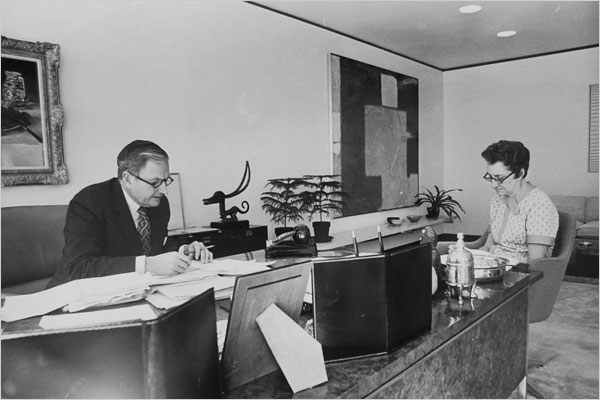
Advantageous Circumstances
David Rockefeller explains to a group of New York bankers that "I have the impression that finally Argentina has a regime which understands the private enterprise system... Not since the second world war has Argentina been presented with a combination of advantageous circumstances as it is now."
None of the activities of the Argentine Junta, from harboring known Nazi war criminals to waging a domestic war against "purported subversives," could have been waged without a great deal of help from foreign banks—mainly American, French, and British. From March 1976 to 1983, the junta increased Argentina's foreign debt from $7.2 billion to nearly $46 billion, raising their country's debt-income ration from ten to fifty percent and boosting the cost of debt services to a record seven percent. To pull this off, the junta required the active assistance of numerous major banks, including Bank of Boston, Citibank, Bankers Trust, Bank of America, Morgan, Lloyds, UBS/SBC, Deutsch Bank, Barclays Bank and BNP.
But its best frind by far was Chase Manhattan's CEO and chairman David Rockefeller Sr. Chase loaned the junta more than $800 million directly and syndicated billions more, become the leader in Argentine loan syndication during this period. Moreover, the junta's key economic minister Jose Martinus de Hoz ("Joe, the Wizard of Hoz") was a former senior advisor to Chase and a very close friend of Rockefeller's.
The Washington Connection and Third World Fascism, Noam Chomsky and
Edward Herman and The Blood Bankers, James S. Henry and Bill Bradley